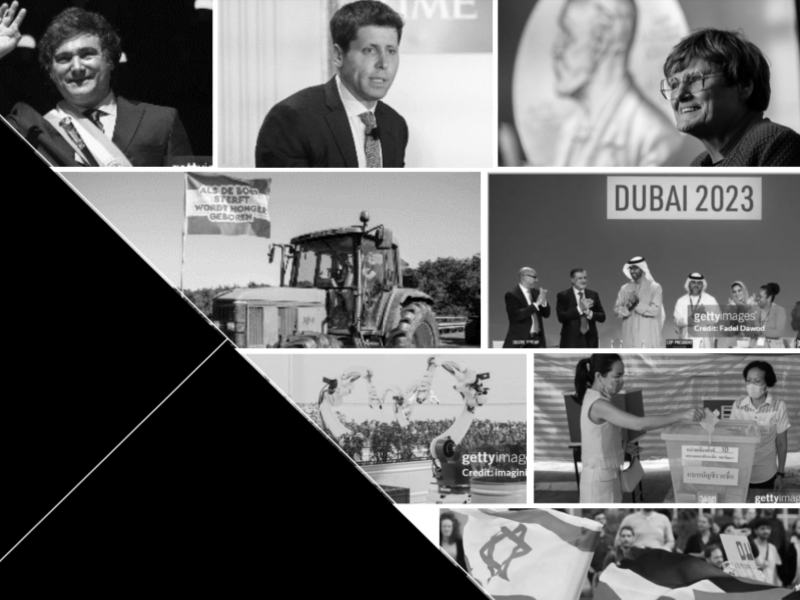Diana Marszalek 14 Jan 2024 // 11:00PM GMT

NEW YORK — The 2024 Edelman Trust Barometer finds that innovation is a new factor driving polarization, putting further advancements in areas like medicine, AI and clean energy in jeopardy.
The annual survey of more than 32,000 participants in 28 countries found respondents by a two-to-one margin believe innovation is being poorly managed. That was true for respondents across developed and developing nations and demographics.
Innovation has also become politicized, especially in Western democracies where right leaning individuals are far more likely than those on the left to resist it, the study found. The biggest gaps are in the US (41 points), Australia (23 points), Germany (20 points), and Canada (18 points).
“Innovation is accelerating and should be a growth enabler, but it will be stymied if business doesn’t pay as much attention to acceptance as it does research and development,” said Edelman CEO Richard Edelman. “More than two-thirds of our respondents believe society is changing too quickly (69%) and in ways that aren’t reflective of their values (67%). The mass-class divide, the huge imbalance in trust between business and government and the infodemic have been the forces behind the decline in trust and polarization. Fear of innovation has now become the fourth log on the populism fire.”
The onus for reversing that trend is largely on business, which was ranked as the most trusted institution globally for the fourth consecutive year. Doing that successfully, however, will involve explaining the impact of innovation and its positives for members of society beyond investors, the agency said.
This year’s report finds that the responsibility of managing change in our social values (57% ) and the introduction of innovation (60%) has also fallen to business — but companies can’t act alone. Over the last decade the Trust Barometer has seen a 14-point increase (46% to 60%) in the demand for business and government to partner on technology-led innovations. Nearly two thirds expect CEOs to address innovation’s impact on job skills of the future, the ethical use of technology and the automation of jobs.
There also is a pervasive belief among consumers that science is losing its independence to government, the wealthy, and the political process. Two-thirds of US consumers believe science is too politicized; In China, three-quarters of respondents say that government has too much influence on science.
There is also skepticism about the influence of the elites, with 82% of respondents believing that the system of innovation is biased in favor of the rich. This has led to a dispersion of authority, where those skeptical of the pace of change view “someone like me” (72%) on par with scientists and experts (67%) in terms of who to believe when it comes to new innovations.
“Against the backdrop of the biggest global election year in history with more than 50 elections slated to take place, trust is under siege from a number of forces,” said Kirsty Graham, Edelman’s president of global practices and sectors and incoming US CEO. “Concern over the impacts of innovation and those driving it have led to greater suspicion of economic and political systems. Institutions must work together to help address these concerns to allow a pathway for continued innovation and progress.”
The study shows the toll the disinformation epidemic is taking on society. The research found that fear over an information war has become one of the biggest societal fears, jumping by six points to 61% since last year. The report also reveals an increase in the belief that societal leaders, including journalists (64%), government leaders (63%) and business leaders (61%) are purposely trying to mislead people by saying things they know are false.
It also documents consumers’ continued distrust in government. Government (51%) is now distrusted in 17 of the 28 countries surveyed, up one from last year, including the US (40%, down two points), Germany (42%, down five points) and the UK (30%, down seven points). Media remains the least distrusted institution at 50% and is distrusted in 19 of 28 countries including the US (39%), Japan (33%), and the UK (31%).
Government officials (42%) are the least trusted societal leaders. Government regulators (47%), journalists (49%) and CEOs (51%) are only slightly more trusted. Scientists (77%), teachers (74%), ‘my CEO’ (69%) and citizens of ‘my country’ (63%) are most trusted.
‘My employer’ is once again the most trusted institution (79%) and trusted in every country surveyed aside from South Korea (49%). ‘My CEO’ (69%) is also far more trusted than CEOs (51%) in general.
The report also finds huge gaps between trust in industry sectors and industry innovations, including a 26-point gap between technology (76%) and AI (50%); a 23-point gap between healthcare (73%) and gene-based therapies (50%); and food & beverage (72%) and GMOs (32%).
Over the last 10 years, the Trust Barometer has tracked a significant decline in trust in companies from the largest exporting nations including China (down three points to 30%); the US (down nine points to 53%); and Germany (down nine points to 62%). Even with a nine-point decline over the past decade, Germany (64%) remains the second most trusted foreign brand behind Canada (66%). While China (37%) saw a three-point bump this past year it remains the least trusted along with India (37%).


































.jpg)


















